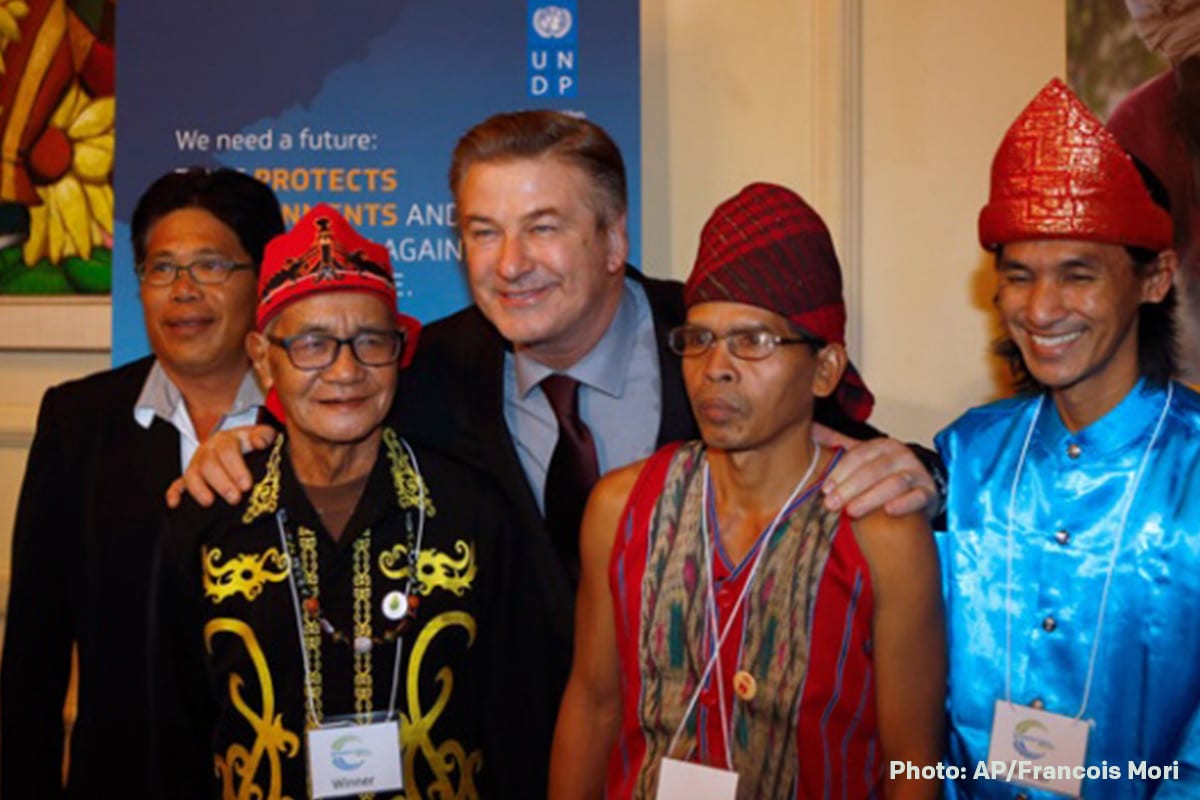Unexpected Climate Heroes Fêted in Paris
By Ellen Wilson, December 18, 2015

Known as the “Academy Awards for Sustainable Development,” the high-profile Equator Prize ceremony awards indigenous and local communities worldwide who have made major strides against climate change in their own backyards—often with minimal resources and against incredible odds.
Hosted by actor and activist Alec Baldwin, this year’s event packed the Théâtre Mogador in Paris’ 9th arrondissement with 1,500 people, including over 50 journalists. It featured videos on the 21 winning initiatives narrated by actor and activist Edward Norton and a musical performance by Amadou & Mariam, a Grammy-nominated duo from Mali. The focus of the evening, however, was the award presentation, during which the winners’ diverse accomplishments were highlighted.
In the weeks and days leading up to the ceremony, awardees met with dozens of journalists worldwide to tell their stories. Among them, the 21 Equator Prize winners have secured land rights for hundreds of communities, saved millions of hectares of forests from destruction, protected endangered wildlife species and created tens of thousands of jobs for their communities. They include groups working in conflict areas in Iran, Afghanistan and the Democratic Republic of the Congo, as well as communities like the Inga in Colombia and the Mosquitia in Honduras that suffer from drug trafficking and other crime.
In the two days leading up to the ceremony, Alec Baldwin met with reporters from around the world to discuss the Equator Prize winners. He spoke to BBC, CNN, CNBC, Associated Press, Grist and dozens of other outlets worldwide, including German, Peruvian and Norwegian outlets. He also penned an op-ed that ran in the Huffington Post.
Baldwin noted that putting a spotlight on the awardees will help them to strengthen and expand their efforts going forward. “I am humbled by our winners, people I have had the pleasure of interacting with these last few days. If past awardees are any indication, the recognition of these groups and the support provided will be a boost to their efforts, and I’m proud to play a part in that.”
Countries with winning initiatives include Afghanistan, Belize, Bolivia, Brazil, Cambodia, China, Colombia, the Democratic Republic of the Congo, Ethiopia/Kenya (cross-border), Guyana, Honduras, Indonesia, Iran, Madagascar, Malaysia/Indonesia (cross-border), Papua New Guinea, Tanzania and Uganda. This is the first time the Equator Prize is being awarded to groups from Afghanistan, Guyana and Iran.
